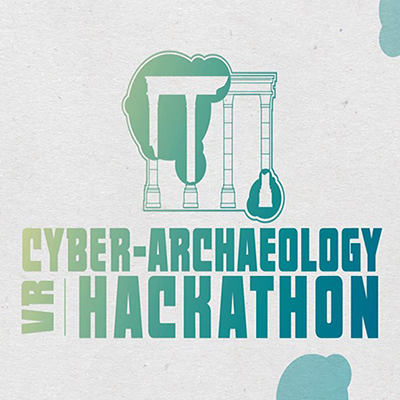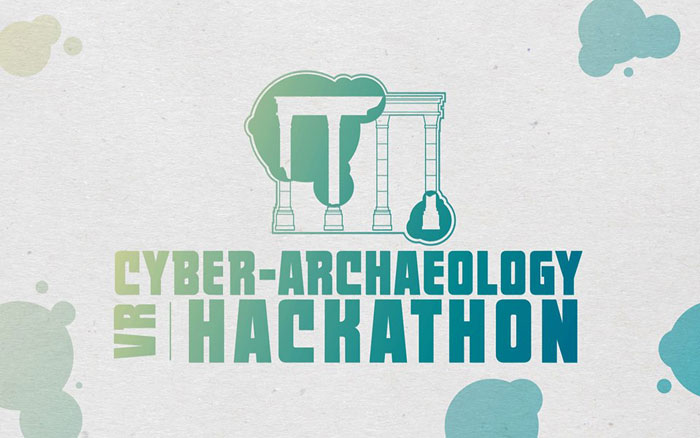
Organized by the student-run Virtual Reality Club at UC San Diego with support from the Qualcomm Institute-based Center for Cyber-Archaeology and Sustainability (CCAS), the Cyber-Archaeology VR hackathon invites participation by graduate and undergraduate students from CSE and other departments on campus. This Friday, March 24 at 11:59pm is the deadline to apply to compete in the VR Hackathon. [Apply here]

The VR Hackathon is set to take place April 7-9, 2017 from 5pm on Friday to noon on Sunday. Plenary meetings will take place in Room 1202 of the CSE building, but most of the hacking will occur in the Virtual Reality Lab (B210) in the basement of the CSE building.
Participants will have 36 hours to create a Virtual Reality experience with applications for at-risk archaeological sites from the eastern Mediterranean region. CCAS will provide all attendees with a wealth of archaeological data, including point-cloud LIDAR scans, photos, and 3D models of cultural heritage sites and artifacts, as well as VR equipment for their hacks.
The team with the best overall project will receive a cash prize of $1,000. There will also be prizes for the second and third place teams. In addition, winning projects will be featured on the CAVEkiosk display wall on the first floor of Geisel Library..
All UC San Diego students can apply for this hackathon. Organizers especially encourage students interested in archaeology or
VR technology to attend. Teams will consist of 1-2 anthropology students and 3-4 computer scientists or engineers, with a maximum team size of six students. Roughly 10 anthropology-archaeology students and 40 engineers will be selected from the applicant pool, for a total of 10 teams and 50 participants. Students should apply as individuals, but they can form teams at the start of the event.
Organizers are providing all VR hardware, space, data, computers, and computer peripherals. Food will also be provided at regular intervals throughout the event, though students will need to eat outside of the VR Lab. Additionally, there will be VR and archaeology workshops and mentors on hand during the hackathon.
Learn more about the VR Hackathon.
Cyber-Archaeology VR Hackathon Facebook Page
Apply to participate by the March 24 deadline.

